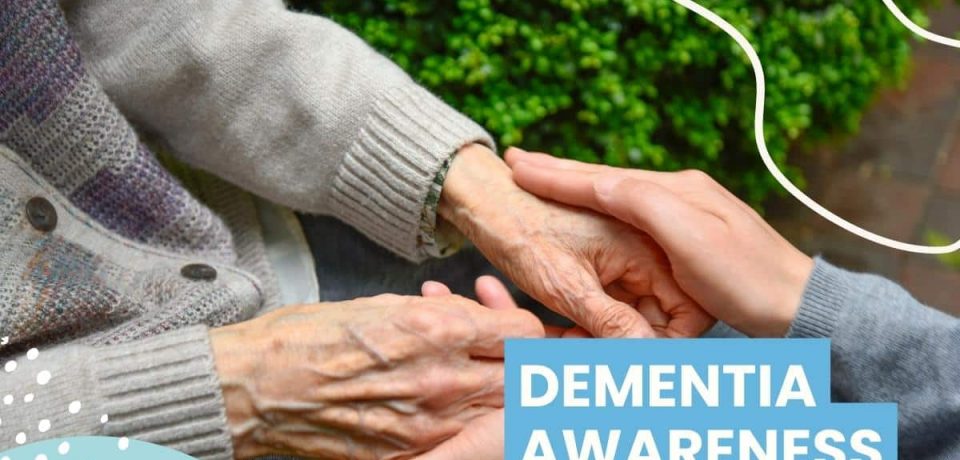Dementia is a progressive neurological disorder that affects millions of people worldwide. It not only impacts the individuals who suffer from it but also places significant stress on their caregivers. In this article, we will delve into the world of dementia, increase awareness about its various aspects, and explore ways to provide support to both individuals with dementia and their dedicated caregivers.
What is Dementia
Dementia is not just a memory problem; it encompasses a range of cognitive, emotional, and behavioral challenges that profoundly impact an individual’s quality of life. Various types of dementia, such as Alzheimer’s disease and vascular dementia, can lead to distinct symptoms and progression patterns. In most cases, why people develop dementia is unknown.
The most common types of dementia are:
- Alzheimer’s Disease: The most common form of dementia, Alzheimer’s primarily affects memory, thinking, and behavior.
- Vascular Dementia: Caused by reduced blood flow to the brain, this type often follows strokes and impacts cognitive functions.
- Lewy Body Dementia: Known for visual hallucinations and motor issues, Lewy body dementia has distinct cognitive and physical symptoms.
- Frontotemporal Dementia: This type leads to personality changes and affects language and behavior due to damage in the brain’s frontal and temporal lobes.
Does Dementia only Happen to Elderly People?
Dementia can happen to anybody, but the risk increases with age. Almost one person in 10 is affected over the age of 65. Dementia is not a normal part of ageing and depends on a combination of age, genes, health and lifestyle.
Early Signs and Symptoms
Recognizing the signs and symptoms of dementia is crucial for early diagnosis and intervention. Cognitive symptoms like memory loss and confusion often coexist with behavioral symptoms such as agitation and aggression. Creating a supportive environment that minimizes potential triggers can greatly enhance the well-being of individuals with dementia.
Dementia affects cognition, communication, and emotions. Individuals may experience frustration, anxiety, and depression due to their diminishing abilities.
Providing Support for Individuals with Dementia
Try these effective communication strategies to make conversations easier and clearer.
- Simple Language: Use clear and concise sentences to aid understanding.
- Active Listening: Give individuals ample time to express themselves and validate their feelings.
- Non-Verbal Communication: Use gestures, facial expressions, and touch to convey emotions.
Creating a Dementia-Friendly Environment
It’s important to keep your loved ones safe by removing potential hazards and installing safety locks to prevent accidents. Familiarity and a consistent routine can also help reduce their confusion and anxiety when performing daily activities. Try to engage them in activities they enjoy and match their capabilities to help stimulate their cognitive functions.
Challenges Faced by Caregivers
Caregivers often experience physical and emotional strain, such as exhaustion, and stress dues to the ongoing nature of care required. The demands of caregiving can also lead social withdrawal and isolation, intensifying feelings of loneliness.
Support groups provide a space for caregivers to share their challenges and receive emotional assistance. Similarly, connecting with other carers who understand your challenges can help reduce feelings of isolation.
Self-Care for Caregivers
Managing stress and balancing your responsibilities can help bring some much-needed reprieve. Practices such as healthy eating, regular exercise, mindfulness and meditation van help you stay present and reduce anxiety.
Where possible, you should plan tasks in advance, delegate responsibilities to people you trust, and don’t be afraid to ask for assistance from friends, family, or hired help when you need it.
Dementia awareness
Dementia awareness is a vital step towards building a compassionate society. By embracing those who suffer from dementia and their caregivers, we create an environment where everyone can lead a fulfilling life despite the challenges. Remember, even small acts of support can make a significant difference.
For more information and resources for people with dementia and their carers visit: Dementia Australia
Please note:
The information provided in this article is for general informational purposes only and not intended as a substitute for professional medical advice, diagnosis, or treatment. Always seek the advice of your physician or medical practitioner if you have concerns regarding a medical condition.
